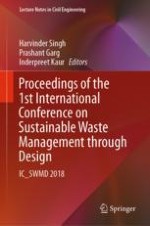2019 | OriginalPaper | Buchkapitel
Strength Assessment of Composite Panels Under Dynamic Loading
verfasst von : J. Raju, M. A. Dar, A. R. Dar
Erschienen in: Proceedings of the 1st International Conference on Sustainable Waste Management through Design
Aktivieren Sie unsere intelligente Suche, um passende Fachinhalte oder Patente zu finden.
Wählen Sie Textabschnitte aus um mit Künstlicher Intelligenz passenden Patente zu finden. powered by
Markieren Sie Textabschnitte, um KI-gestützt weitere passende Inhalte zu finden. powered by
